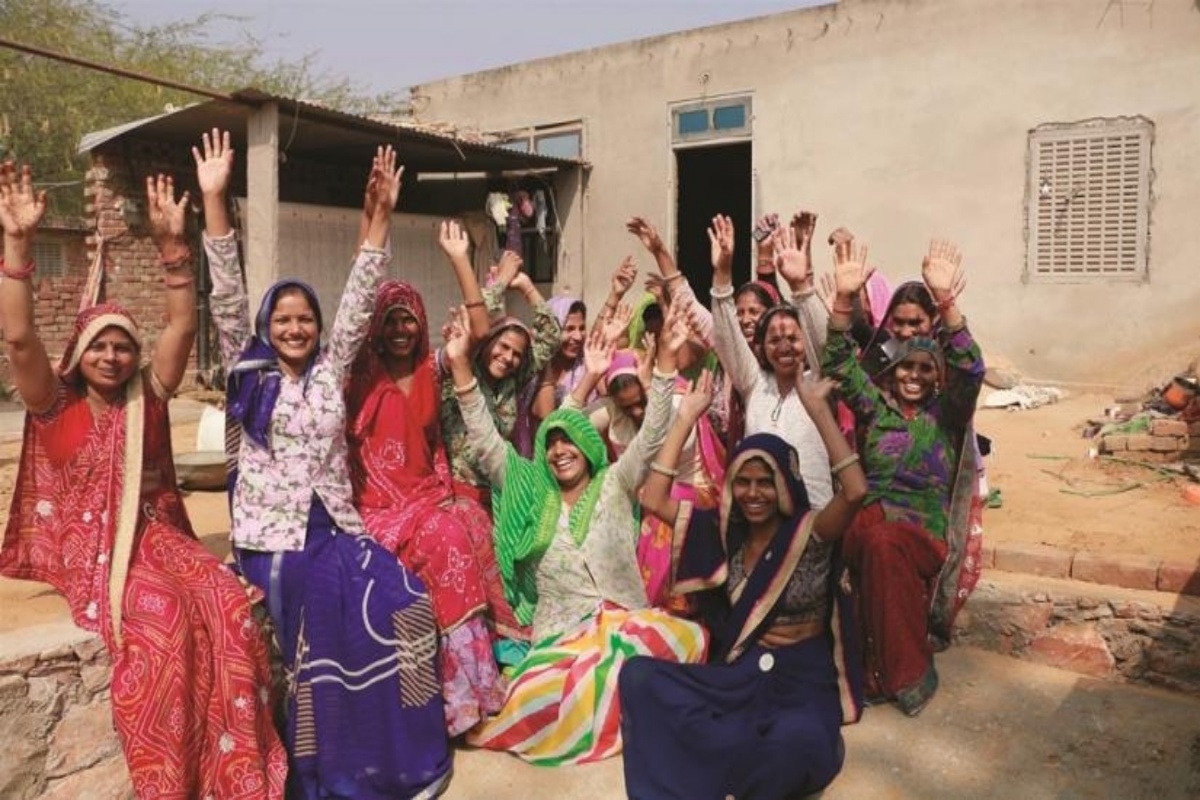Established in 2004, the Jaipur Rugs Foundation works with several ethnically diverse communities spread across 600 villages in five states that lie in some of the most impoverished regions of India.
“It aims to reach out to remote rural areas and establish bonds with village communities, enabling them to start weaving not just rugs but also their own
Advertisement
lives,” says its founder N.K. Chaudhary.
Advertisement
In a conversation with IANSlife, the veteran shares the various initiatives by the company to empower rural lives and those impacted by the pandemic.
Excerpts:
Q: What is the vision of Jaipur Rugs Foundation?
A: In 2004, I established the Jaipur Rugs Foundation (JRF) with a vision to create a society where equality, justice, and peace prevail through socio-economic development.
Its aim is to provide opportunities for all, with the insurgent mission to serve as a social innovator promoting the cause of artisans by providing them with job opportunities resulting in an uplifted rural society.
Q: How is your brand working towards empowering rural India for the betterment of the artisans?
A: Since the inception, I felt comfortable working directly with the weavers, training and upgrading their skills to deliver quality work. The company today works harmoniously with several ethnically diverse communities spread across 600 villages in five states that lie in some of the most impoverished regions of India.
To further this cause, I set up the Jaipur Rugs Foundation in 2004. The foundation’s aim is to reach out to remote rural areas and establish bonds with village communities, enabling them to start weaving not just rugs but also their own lives.
Through the Manchaha initiative, conceptualised by Kavita Chaudhary, design director, Jaipur Rugs, the brand tapped into the untamed fashion from the villages of India. It experiments with the originality of rural craftsmen to nurture their creative potential, which is unexplored at a global stage. For the first time ever, weavers get to be the designers of their own rugs. Each rug in the collection is a masterpiece for the design inspiration it weaves. It is imbued with the individuality of its artisan evident in unique artistry.
This collection has won numerous awards, including the German Design Award, Elle Decor Award, Carpet Design Award, If Design Award, Deezen Award and the European Product Design Award.
Through the initiative, rural men and women who have either had no education or just primary education, have stunned the world with original designs competing with professional designers and mega design houses on the global stage. This one-of-its kind social innovation has resulted in important transformations in the life of the weavers.
Q: Tell us about your collaboration with the NGO Creative Dignity.
A: The Foundation along with Creative Dignity is reaching out to artisans and their families in Rajasthan and Uttar Pradesh and assessing the community awareness and preparedness and providing various levels of relief support. To prevent the spread of coronavirus, JRF is conducting on-ground training programmes to create awareness around the importance of physical distancing, masks, vaccines, and other preventive measures. In addition to this, they are providing training on home isolation protocols, facilitating online consultation with the doctors, providing medical kits such as oximeters, medicines, thermometers, etc. for prevention and home isolation and town hall zoom sessions with artisans.
Q: How was Freedom Manchaha initiative started? Please share details.
A: JRF is working with 100 plus inmates in central jails in Jaipur, Dausa and Bikaner to provide them meaningful and fulfilling work by teaching them the art of carpet weaving as part of Jaipur Rugs Foundation’s Freedom Manchaha project.
One of the biggest tragedies to befall a family is the incarceration of the breadwinner. The innocent victims of the justice system are the families whose lives are upended irreversible. Most of the prisoners come from economically weak backgrounds and are rarely literate. Their lives are marred by poverty and crime and the only way to bring about change is to empower them economically. The Jaipur Rugs foundation has started an initiative to teach carpet weaving to inmates who are serving long sentences.
The aim is to create sustainable livelihood for them so that they can support their families through it. The foundation is also helping in opening bank accounts for these prisoners so that they can receive the payment for their work directly in their accounts for the work they do.
“I cannot believe I made this carpet, and I am very happy by this work. Creating it, kept my mind and heart busy, I want to make all the beautiful things of the world in it,” says Rabin, one of the inmates who has woven his first ever Manchaha rug.
The AO rugs are designed and woven by the weaver themselves; they are a display of the weaver’s own creativity and ideas. For the first time ever, weavers become the designers of their own rugs and express themselves through their designs.
The initiative explores, for the first time, a livelihood opportunity for inmates enabling creative expression and healing. Turning disengaged inmates who were counting down days into a creative powerhouse making handmade works of art using leftover yarn from commercial carpet production. Inmates get trained in the art of carpet weaving and express themselves creatively on the loom weaving their dreams and hopes knot by knot. Instead of making prisons into commercial carpet production centres and rendering inmates into wage labourers, we chose to create unique works of art by nurturing latent creativity. Turning inmates of varying backgrounds into artists. As several inmates work together on the same carpet their contrasting personalities are reflected into the design giving birth to a new visual language.
Advertisement











